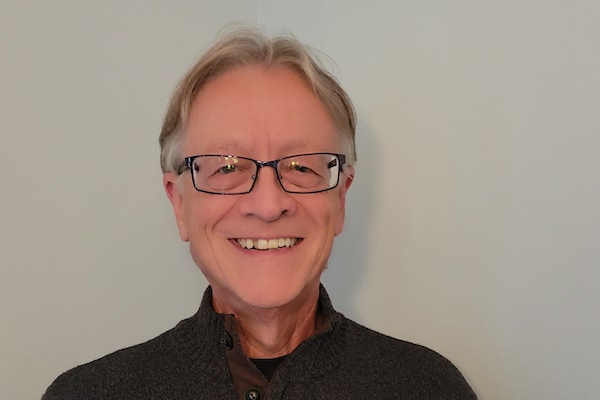Cancer Survivorship and The New Retirement
Tips for Planning a Vibrant Retirement as a Cancer Survivor
by Chris Frey, MSW, ACSW, LCSW
In 2006, focused on the here-and-now of treatment for stage IV throat and neck cancer, I was oblivious to what would become another transformational chapter in my life’s journey, waiting just sixteen years down the road – the transition into retirement. As I neared retirement age, a new question about the impact of cancer came into the picture: How will cancer survivorship affect my plans to carry on a life of meaning and purpose as I age?
The New Retirement
The traditional view of retirement as a retreat from work into leisure and old age has changed. Whether out of desire or financial need, many of us will keep working well into our later years. Retiring into a life of volunteerism, caregiving, hobbies, social activities, and leisure is no longer dictated by a predetermined point in time. However, even if you retire later in life than you had originally planned, you can still enjoy your retirement years.
Whether you continue to strive toward personal or professional goals, or simply settle into a life of pure leisure, enjoying your retirement as a cancer survivor – particularly an aging cancer survivors – requires adaptability.
Here are my tips for planning a vibrant retirement as a cancer survivor.
Practice self-care. Dealing with the long-term effects of cancer made me all too aware of how important self-care is. Then, when you pair the ongoing challenges of cancer survivorship with those that are brought on by the natural aging process, it becomes even more imperative to take care of your physical, mental, and emotional health. As my body changes, I am reminded that “healthy food is fuel” and that I must try to stay active – safely – if I want to be able to fully enjoy my hobbies, bicycling, traveling, family, and friends.
Do what energizes you. What motivates you to get up and going in the morning? Do you have a hobby you’ve been passionate about for decades? What about an interest you long ago set aside but promised yourself you’d finally pursue when you had the time? Well, now you have the time. You may even want to experiment, try something new. I did. Kayaking didn’t stick. Writing my first mystery novel did.
Be flexible. Whether you continue to strive toward personal or professional goals, or simply settle into a life of pure leisure, enjoying your retirement as a cancer survivor – particularly an aging cancer survivor – requires adaptability. This is a skill you’ve no doubt had plenty of opportunities to practice along your cancer journey. Your retirement may look different from the one you had planned. However, by exercising flexibility and resilience, you can live your best retired life. As for me, cancer had a lasting impact on my voice. Older singers, unable to hit the high notes they once could, just switch songs to a lower key. My voice isn’t what it once was, yet I continue to sing. And the kind people I surround myself with continue to listen, which leads me to my next point.
“Surround yourself with people whose eyes light up when they see you coming.” These wise words were spoken by the amazing André De Shields at the 2019 Tony Awards as he was accepting his first-ever Tony at the age of 73 for his role as Hermes in Hadestown. This was rule number one of his three cardinal rules for longevity. And it’s a good one. Social connection is necessary for emotional and physical well-being, whether we are extroverts who enjoy a high degree of interaction or more introverted folks drawn to a smaller, close circle of relationships. As we age, so too does our social network. It’s important that we keep making connections, even in retirement. And that those connections are with people who lift us up rather than bring us down.
Talk about it. Easy for some. Difficult for many. As we create a dynamic new retirement as cancer survivors, our needs will frequently change. Plans will need to be revised. We may need to ask for help. Cancer teaches us that having a long-term support team is a must. But your support system won’t know how to best support you if you don’t communicate your wishes and needs.
Finding Meaning & Purpose in Retirement
I hope we all by now embrace the sentiment, “You are a cancer survivor – and more.” As you move toward an empowered retirement, consider this: “You are a cancer survivor entering a new stage of life – and more.” Your life is not defined by cancer, nor is it defined by your age. You get to decide what your life as a retired adult will be. If you haven’t already, I encourage you to start planning for your retirement now. The right preparation can help replace worry and uncertainty about this next chapter in your life with excitement and opportunity.
Chris Frey is a stage IV throat and neck cancer survivor and psychotherapist from St. Louis, MO. He’s the author of I’m Sorry, It’s Cancer: A Handbook of Help and Hope for Survivors and Caregivers and co-instructor of Your Next Move: Transitioning to the New Retirement at Washington University in St. Louis. He writes fiction under his pen name, Raymond Parish. Questions for Chris can be emailed to freyeagle@gmail.com.
This article was published in Coping® with Cancer magazine, November/December 2022.


